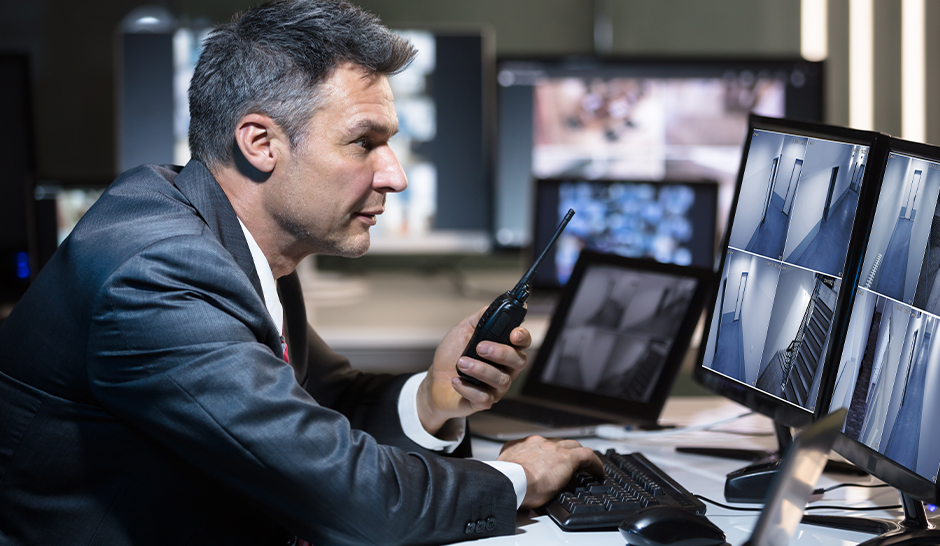Security professionals play an essential role in today’s society. All across the country, businesses, neighborhoods, schools, private individuals, and others are utilizing the services of security professionals to protect people, property, and information. The security profession is also a growing field with plenty of new career opportunities being posted every day.
In this post, we will explore what a security guard is, what are the duties of a security guard, what qualifications may be required to become a security guard and explore what types of training opportunities are available for security officers through NITA.
Security Officer Job Description
A security professional (sometimes referred to as a security guard or security officer) job description is diverse and may include securing property from theft, patrolling a designated area, monitoring alarms or lock devices, protecting and serving people, and acting as liaison to emergency services.
Generally speaking, the roles of a security guard involves the following responsibilities:
Protecting property from theft, vandalism, and other damage
A security guard's responsibilities often include preventing property from being vandalized, stolen, or otherwise lost or damaged as a result of human or natural activity. This includes responding to fire alarms that are triggered, ensuring equipment is not left running unintended, and ensuring that property, doors, and gates are properly secured and only accessible by authorized individuals.
Patrolling and being a security presence
A variety of businesses and event venues rely on security guards to conduct security patrolling duties and function as a presence to deter crime and bad behavior. For example, a large event venue may require security guards to monitor entrances and ensure only authorized individuals access the event. Other responsibilities in this context may include patrolling high-traffic areas to ensure crowds are moving safely and that access points remain open and unrestricted or functioning as a mobile security guard to enforce on-site traffic and parking rules.
Monitoring and securing premises
Another one of a security guard’s responsibilities is to continually monitor and secure premises. This could involve active monitoring of security cameras, responding to triggered alarms, and ensuring that locks and security equipment are functioning properly at all times.
Protecting and serving people
Interacting with people is a key role of security guards in many businesses and other security programs. A Security Guard plays a crucial role in helping employees gain badge access to buildings and escorting employees into and out of buildings to their vehicles in the parking lot. They may even need to respond to employee requests for help in the event of a vehicle breakdown, injury, or other security-related incidents.
Securing information
Some organizations and businesses also rely on security professionals to help them enforce information security best practices. In an age of corporate hacks and information theft, security guards play a crucial role in ensuring that local premises are secure. This could include monitoring premises to ensure employees lock their computers when away from their desks and that unauthorized individuals do not have access to sensitive systems or information.
Functioning as a liaison to emergency services
A critical responsibility of security guards is to function as a first line of defense at a particular site. But a security guard is also responsible for knowing when to contact emergency services (such as police, fire, and medical services) in particular situations and incidents. When emergency services are contacted, security personnel often function as a critical link in helping them quickly access the site and fulfill their job.
What qualifications do you need to become a security officer?
To become a security officer, you must first possess a variety of positive character traits, such as dependability, integrity, and attention to detail. You may also be required to be physically fit and able to conduct foot patrols and lift heavy objects.
When it comes to licensing and certifications, requirements vary by state and locale. But generally speaking, most states require an individual to complete some form of training or licensing to become an unarmed security guard. There are almost always additional certifications and training required for becoming an armed security guard.
In most cases, the business or firm that hires you will help you understand and navigate all of these particular requirements, but if you have additional questions be sure to check your local area’s particular requirements.
What additional training are possible?
The security profession is a diverse and exciting field with security guard duties and responsibilities varying widely from one opportunity to another. It’s also a field where quality training can make all the difference in helping you to excel in your role and develop critical security officer skills.
NITA offers a wide variety of affordable online security training courses for security professionals. These courses will help you meet pre-licensing and continuing education requirements, improve your security officer skills, and grow in your understanding of the security industry. We invite you to explore our full course offerings.
You might also like:
Our enrollment counselors are here to answer any questions you might have about our state- and board-approved status, pre-licensing training, or professional development programs.




